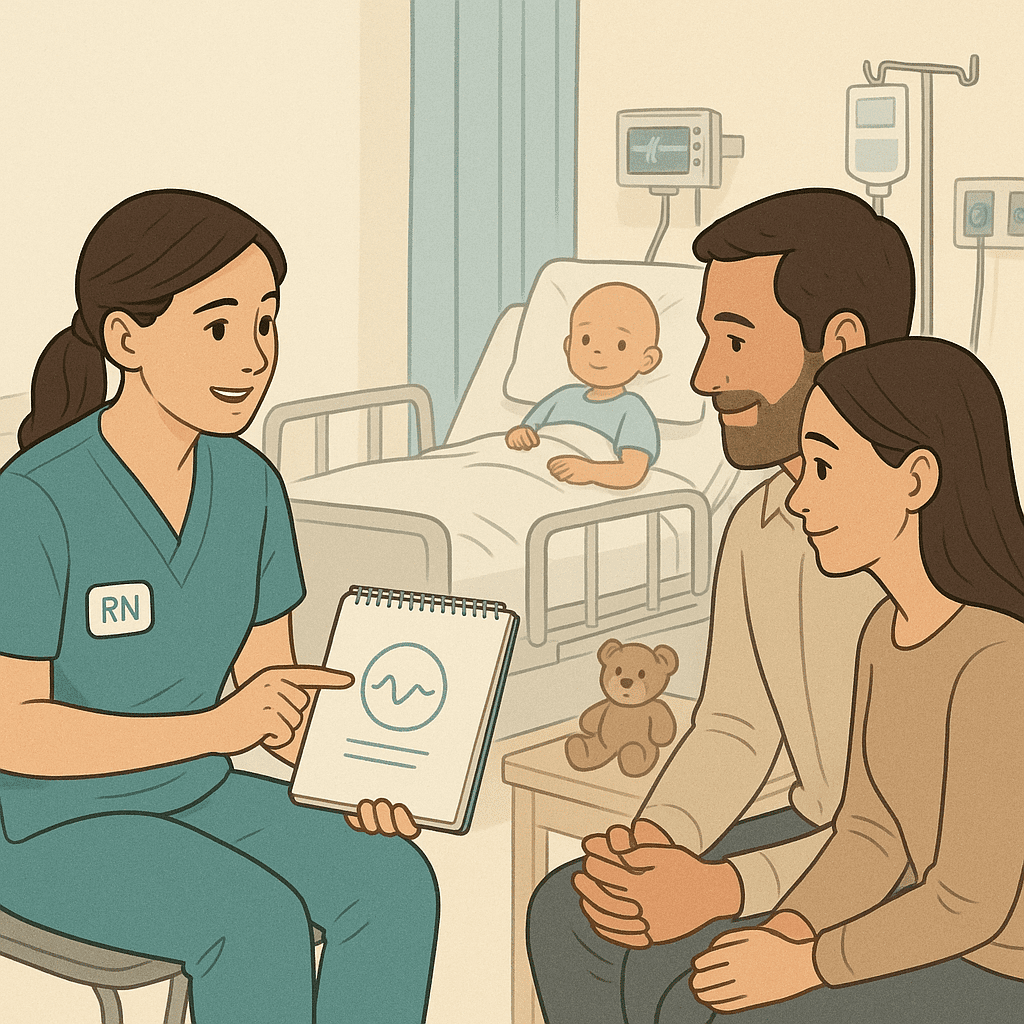Effective nursing care is not just about treating patients; it’s also about guiding families through the health journey. Parents and caregivers often feel overwhelmed when their child or loved one is diagnosed with a condition. As an RN nurse or registered nurse, your ability to break down medical terms into simple, understandable language is essential for family-centered care and NCLEX preparation.
In this article, we’ll explore strategies for family teaching guides that help parents understand complex conditions without medical jargon—something every nurse should master.
Why Family Teaching Matters in Nursing
Families are often the primary caregivers once the patient leaves the hospital. Clear teaching from a nurse helps:
- Reduce anxiety and confusion.
- Improve treatment compliance.
- Prevent complications at home.
- Empower parents to care with confidence.
For NCLEX and real-world practice, patient and family education is always a priority nursing role.
How Nurses Can Simplify Explanations
- Use Everyday Language
- Instead of “hypertension,” say “high blood pressure.”
- Replace “edema” with “swelling.”
- This builds trust and makes parents feel included.
- Teach in Small Steps
- Break complex conditions into key points.
- Example: For asthma – “The airways are tight, the child coughs or wheezes, and we give medicine to open the airways.”
- Use Visual Aids and Analogies
- Charts, drawings, or models make learning easier.
- Comparing the heart to a “pump” or the lungs to “balloons” makes sense to families.
- Confirm Understanding (Teach-Back Method)
- Ask parents to explain back what they understood.
- This ensures clarity and reinforces learning.
Examples of Family Teaching Guides
- Diabetes:
“This condition means the body has trouble using sugar for energy. We use insulin or medicine to help the sugar go where it belongs.” - Fever in Children:
“A fever is the body’s way of fighting infection. We watch behavior and hydration more than just the number.” - Heart Failure:
“The heart is weaker and cannot pump enough blood. We help with medicine, diet changes, and rest.”
These explanations align with nursing bundles for NCLEX prep, showing how to translate medical knowledge into family-friendly teaching.
Nursing Tips for Effective Family Education
- Be patient—families may need repetition.
- Provide written materials with simple words.
- Include cultural and language considerations.
- Focus on safety teaching (e.g., when to call the doctor, medication safety).
Final Thoughts
Whether you’re preparing for the NCLEX or practicing as an experienced registered nurse, mastering family teaching guides is essential. Parents look to the nurse for reassurance, guidance, and clarity. With the right tools and simple explanations, you empower families to care confidently at home.

